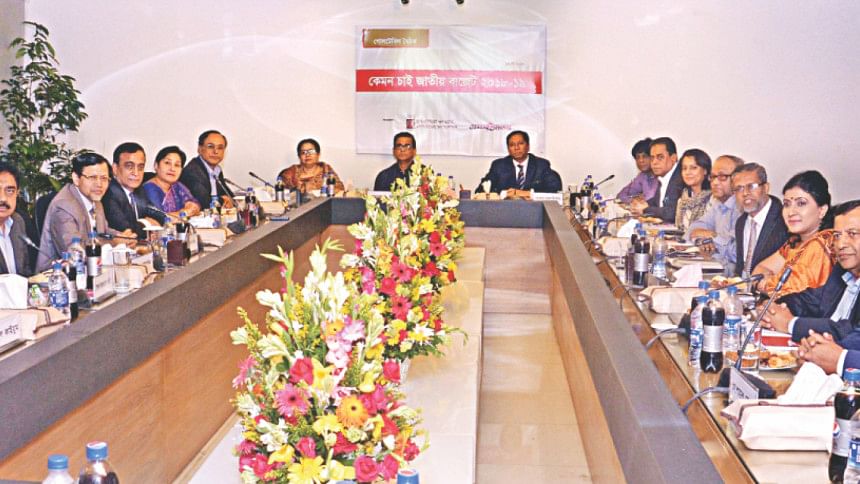Safety net outlay to rise by Tk 11,000cr

The government is set to raise the allocation for social safety net schemes by about Tk 11,000 crore in 2018-19 to increase the number of recipients and allowances per person.
“Both the coverage and the allowance will be increased in the next budget,” said Shamsul Alam, a member of the planning commission, yesterday.
The government has allocated Tk 54,206 crore for the ongoing fiscal year, up 33 percent from a year earlier. More than 130 safety net schemes, covering 16.72 lakh people, are being run in 2017-18, according to the finance ministry.
The improvement of rural road network and infrastructure with a view to creating jobs and vibrancy in the rural economy will be the focus of next year's budget, Prof Alam said.
His comments came at a discussion on 2018-19's budget jointly organised by the Institute of Chartered Accountants of Bangladesh (ICAB) and Bangla daily Prothom Alo at the ICAB's office in Dhaka.
Corruption eats up 2 percent of Bangladesh's GDP, while violence against women eats up an equal percentage of the economy, said Rasheda K Choudhury, a former adviser to a caretaker government.
“But we can address both the issues and increase GDP by ensuring the rule of law,” she said.
She called for an increased allocation for education, citing that public investment in the sector has been about 2 percent of the GDP for the past 18 years.
“There is a lack of good governance,” said Faruq Ahmad Siddiqi, a former chairman of the Bangladesh Securities and Exchange Commission.
He went on to state that the economy may lose pace unless governance is improved.
ICAB President Dewan Nurul Islam stressed on encouraging both domestic and foreign investment and appreciated the government initiative to reduce corporate tax in the upcoming fiscal year.
Mustafizur Rahman, a distinguished fellow of the Centre for Policy Dialogue, called for exercising caution before taking the final decision of slashing the corporate tax.
“It is not the only factor in increasing private investment -- there are other factors.”
He proposed establishing a model special economic zone to set an example and attract investors.
“Inequality in income, wealth and consumption is rising. So, emphasis should be given to resource mobilisation and proper distribution,” Rahman added.
Siddiqur Rahman, president of the Bangladesh Garment Manufacturers and Exporters Association, called for formulating a budget focusing on job creation and providing incentive to those areas where jobs are created.
“The bank interest rate for lending should be reduced to attract large investments,” he added.
The high interest rate on loans might discourage private investment, said ICAB Council Member AF Nesaruddin.
“A business-friendly environment cannot be ensured with a high interest on loans,” said Nazneen Ahmed, senior research fellow of the Bangladesh Institute of Development Studies. The small and medium enterprises face difficulty in getting loans and the high interest rate increases the burden on them, she added.
Muhammad Abdul Mazid, a former chairman of the National Board of Revenue, called for separating the task of fiscal policymaking from tax collectors.
“Taxmen should not frame policy,” he said.
Kamrul Abedin, a former president of the ICAB, suggested retaining the subsidy for treatment of diseases, particularly cancer and kidney.
Syeda Rizwana Hasan, chief executive of the Bangladesh Environmental Lawyers Association, demanded investment in water transport to reduce the pressure on roads.
Citing traffic congestion in the capital, she said: “It is still not possible to attend two meetings in two parts of the city on the same day.”
Prothom Alo Associate Editor Abdul Qayyum demanded reduction of import duty on newsprint to help the newspaper industry tide over the challenging times.
Muhammed Farhad Hussain and Parveen Mahmud, both past presidents of the ICAB, and Md Shahadat Hossain, council member of the association, also spoke at the discussion moderated by another ICAB former president Md Humayun Kabir.

 For all latest news, follow The Daily Star's Google News channel.
For all latest news, follow The Daily Star's Google News channel. 



Comments